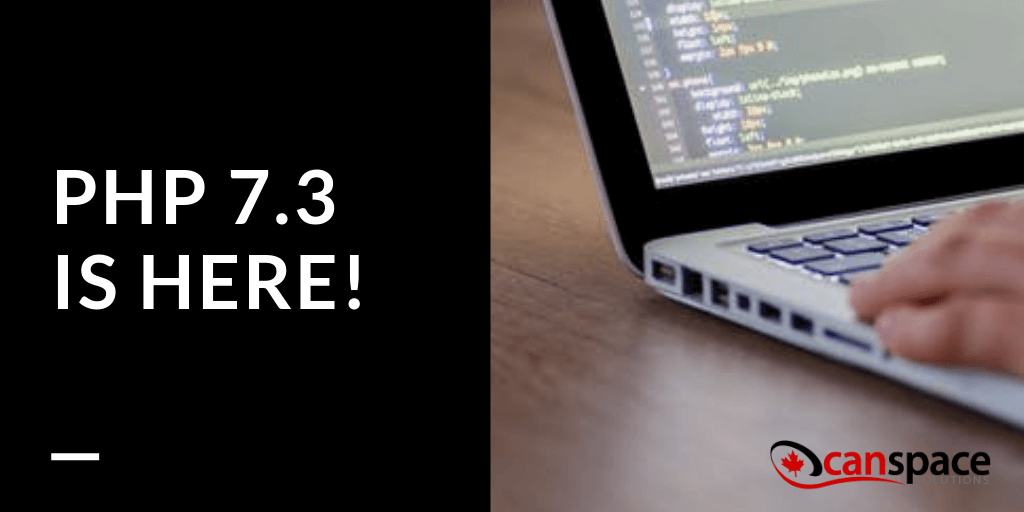It takes a special kind of nerd to get excited when a new update to PHP rolls out.
The important thing to note? All CanSpace servers now support PHP 7.3, which means that if you’re running a website platform that requires it and is up-to-date, everything should be perfectly compatible.
What’s PHP, you may ask? It’s a general-purpose scripting language that can very easily be embedded into HTML, and therefore is one of the main languages used in web development. If your website runs on WordPress, for example, the main scripting language it runs on is PHP.

PHP is what is known as a “server-side” scripting language. That means that the user’s computer doesn’t have to process any PHP — instead, when the user’s browser visits a particular website, that site’s server processes the PHP and generates HTML as an output that is sent back to the requesting browser.
Simply put, if you’re using CanSpace as your host, your servers will be running the latest PHP version which should, in turn, lead to the smoothest possible integration with many different website platforms.
PHP 7.3 was officially launched in December 2018. Here’s what you need to know about updates in PHP 7.3:
1. Update to heredoc and nowdoc syntaxes
These powerful syntaxes are often underutilized by programmers because of their rigidity and also poor readability when looking back over the code. PHP took note of this, and have added more flexibility: the closing marker to be indented there is no longer the requirement for a new line after the closing marker.
2. Trailing commas are universally accepted
While trailing commas were allowed in PHP 7.2 in grouped namespaces, PHP 7.3 enables developers to add trailing commas in function declarations.
3. Improved Security
PHP can now throw up a same site cookie flag, which monitors what domain cookies are sent from. This reduces the risk of the risk of CSRF and information leakage attacks. There are two designations: cookies marked samesite=Lax will not be passed for any cross-domain requests unless it’s a regular link that navigates the user to the target site; cookies marked samesite=Strict will not be sent for any cross-domain requests.
4. Better performance!
As you probably know by now, speed is everything when it comes to website performance. PHP has taken note of this, and provided more of the performance its users crave. Tests have shown PHP 7.3 to be 31% faster than PHP 7.0, and almost 10% faster than PHP 7.2, which should have a tangible impact for all users.
Most of these updates will not affect you immediately unless you’re a website developer yourself. Still, PHP 7.3 is doing many things behind the scenes to improve the general operation of websites. For any questions about the move to PHP 7.3, don’t hesitate to reach out to us!











